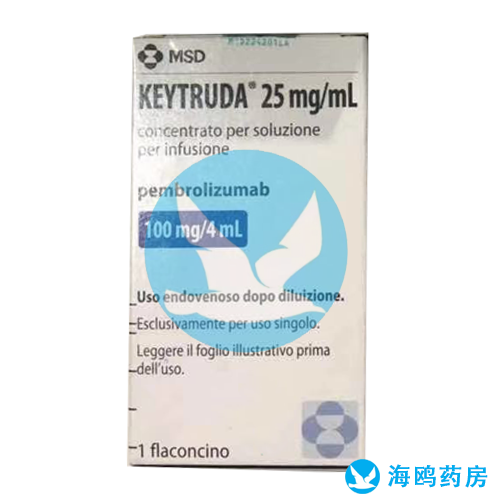Disease-Free Survival Benefits Persist With Adjuvant Pembrolizumab in RCC
Pembrolizumab (Keytruda) neoadjuvant therapy compared with placebo improved disease-free survival (DFS) in patients with renal cell carcinoma (RCC) who are at high risk of recurrence, according to updated analysis of the phase 3 KEYNOTE-564 trial (NCT03142334) reported at the 2022 Genitourinary Cancers Symposium.1

“This updated analysis of KEYNOTE-564 further supports adjuvant pembrolizumab as a new standard of care for patients with RCC with high risk of recurrence,” study author Toni K. Choueiri, MD, director of the Lank Center for Genitourinary Oncology, Dana-Farber Cancer Institute, Brigham and Women’s Hospital, and Jerome and Nancy Kohlberg Chair and Professor of Medicine at Harvard Medical School in Boston, Massachusetts, said in an interview.
Previous reports of the study found that treatment with adjuvant pembrolizumab yielded a statistically significant and clinically meaningful DFS benefit vs placebo in the intent-to-treat population (HR, 0.68, 95% CI: 0.53-0.87, P = .001).2 The updated efficacy and safety analysis occurred at 30.1 months of follow-up.
KEYNOTE-564 evaluated patients with RCC defined as intermediate-high risk (pT2, grade 4 or sarcomatoid, N0, M0; pT3, any grade, N0, M0), high-risk (pT4, any grade, N0, M0; any pT, any grade, N+, M0) and M1 no evidence of disease (NED) following surgery. Patients randomized 1:1 to receive either pembrolizumab, 200 mg every 3 weeks (n = 496) or placebo every 3 weeks (n = 498).
Median patient age was 60 years in both the treatment and placebo groups. A total of 347 patients in the pembrolizumab group were male (70.0%) vs 359 patients (72.1%) in the placebo group. Regarding risk category, 427 patients were intermediate-high risk (86.1%), 40 patients (8.1%) were high risk, and 29 patients (5.8%) were M1 NED in the treatment group vs 433 (86.9%), 36 (7.2%), and 29 (5.8%) in the placebo group, respectively. In the treatment group, there 52 patients (10.5%) in whom sarcomatoid features were present vs 414 patients (83.5%) in whom sarcomatoid features were absent, compared with 59 (11.8%) and 415 (83.3%) in the placebo group.
For the primary end point of DFS, benefit was maintained in patients receiving pembrolizumab (HR, 0.63, 95% CI: 0.50-0.80, nominal P < .0001) and was as follows across the 3 subgroups:
• Intermediate-high risk: HR, 0.68 (95% CI: 0.52-0.89)
• High risk: HR, 0.60 (95% CI: 0.33-1.10)
• M1 NED: HR, 0.28 (95% CI: 0.12-0.66)
“The estimated DFS rate at 24 months was 78.3% with pembrolizumab vs 67.3% with placebo…The estimated [overall survival] rate at 24 months was 96.2% with pembrolizumab vs 93.8% with placebo,” wrote the authors.
In the primary analysis of KEYNOTE-564, presented at 24.1 months’ follow-up, 470 patients (96.3%) in the pembrolizumab group experienced an all-cause adverse event (AE) vs 452 (91.1%) in the placebo arm; in the updated findings presented at the 2022 ASCO GU Symposium, the number of patients in the pembrolizumab arm experiencing an all-cause AE was unchanged compared with 453 patients (91.3%) in the placebo arm. Grade 3-4 AEs were also very similar for the pembrolizumab arm at 24.1 months and 30.1 months with 42 patients (8.6%) and 43 patients (8.8%) respectively, compared with 3 patients (0.6%) in the placebo arm at 24.1 and 30.1 months.
References
Choueiri TK, Tomczak P, Park SH, et al. Pembrolizumab as post nephrectomy adjuvant therapy for patients with renal cell carcinoma: Results from 30-month follow-up of KEYNOTE-564. J Clin Oncol. 2022;40(suppl 6):abstr 290. doi:10.1200/JCO.2022.40.6_suppl.290
Choueiri TK, Tomczak P, Park SH, et al. Adjuvant pembrolizumab after nephrectomy in renal-cell carcinoma. N Engl J Med. 2021;385(8):683-694. doi:10.1056/NEJMoa2106391
https://www.cancernetwork.com/view/disease-free-survival-benefits-persist-with-adjuvant-pembrolizumab-in-rcc
Disclaimer:《Disease-Free Survival Benefits Persist With Adjuvant Pembrolizumab in RCC》Edited and sorted by Seagull Pharmacy's editors. Please contact us in time if there is any infringement. In addition, the suggestions for drug usage, dosage and disease mentioned in the article are only for medical staff's reference, and can not be used as any basis for medication!